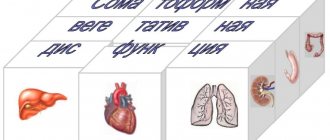What are the dangers of colds and flu in pregnant women?
Respiratory infections pose two threats. Firstly, they may be accompanied by fever, which can lead to defects in fetal development. And secondly, influenza and ARVI during pregnancy can lead to the development of complications. During pregnancy, a number of changes occur in the immune response, as well as in the functioning of the heart and lungs, making the mother's body especially vulnerable. Therefore, colds and flu in expectant mothers are much more severe than in non-pregnant women and are often complicated by bacterial infections, including bronchitis and pneumonia.
The World Health Organization has included pregnant women at risk of developing severe and/or complicated influenza. It has been proven that pregnant women with the flu require hospitalization 4 times more often than non-pregnant women. Among patients in the third trimester, 8% require hospitalization in intensive care units [3].
Timely vaccination can prevent infection with the influenza virus during pregnancy. If infection has already occurred, the woman needs to begin treatment for ARVI or influenza during pregnancy as early as possible.
The main causes of intercostal neuralgia
Most often, the following reasons lead to compression and irritation of the intercostal nerves:
- Osteochondrosis. A degenerative disease that primarily affects the intervertebral discs. Their height decreases - the distance between adjacent vertebrae decreases, this leads to compression of the nerve roots.
- Hypothermia, exposure to drafts.
- Intense physical activity, sudden awkward movements.
- Working in an awkward position when your back is constantly under tension.
- Injuries to the chest and thoracic spine, previous surgeries.
- Frequent and severe stress.
- Viral infections. The most common cause is a cold, shingles.
- Chronic spasm of the back muscles. It promotes irritation of nerve receptors.
Most often, intercostal neuralgia occurs in older people, when the causes of the disease are layered with age-related changes in the spine and blood vessels.
Is it necessary to bring down a high temperature during pregnancy and what medications can be used?
It is important to manage fever in pregnant women in a timely manner, since high temperature can negatively affect pregnancy. It is especially dangerous in the first 12 weeks, when the formation of all organs and systems occurs. Hyperthermia in pregnant women during the first trimester doubles the risk of developing neural tube defects (future brain and spinal cord defects) and may also be associated with other birth defects and adverse outcomes in the baby [1].
It is not known for certain which temperature exceeding the greatest danger. Thus, data from a cohort study involving more than 77 thousand women showed that the incidence of malformations was approximately the same among those who reported a fever below 39 and above 39 degrees in the first trimester [1].
The drug of choice for reducing fever is paracetamol, which is approved for use throughout pregnancy [2]. In addition, ibuprofen is used as an antipyretic and analgesic in the first and second trimesters. Multivitamins containing folic acid can reduce the risk of developmental defects due to hyperthermia [1].
How to reduce a sore throat? What antiseptics can I take?
During pregnancy, it is allowed to use a number of antiseptics for sore throats, so it is not necessary to endure sore throat and other unpleasant symptoms during this period. Medications that expectant mothers can take include:
- ambazon, which has an antimicrobial effect against streptococci, daily dose 4–5 tablets 0.04–0.05 g;
- the combination of lysozyme + pyridoxine exhibits an antiseptic effect against gram-positive and gram-negative bacteria, fungi and viruses. Vitamin B6 in its composition has a protective effect on the oral mucosa. Prescribe 2 tablets 3-4 times a day.
In addition, warm drinks, which are indicated in unlimited but reasonable quantities, help reduce sore throat.
Can pregnant women take any expectorant medications?
Therapists and obstetricians-gynecologists recommend that pregnant women refrain from taking expectorant medications if possible. The vast majority of drugs in this group are prohibited for use during pregnancy, including herbal remedies, which are often considered “safe” by consumers. In fact, plantain syrup, preparations based on thyme and thyme extract, and other popular herbal remedies are contraindicated for pregnant women.
At the same time, the drug ambroxol is still approved for use by pregnant women in the second and third trimesters with the label “with caution.” The same applies to bromhexine - it is prescribed, but only after a careful assessment of the benefit/risk ratio, and only the attending physician can carry it out. Therefore, primary care providers who advise pregnant women with requests for expectorant medications should limit themselves to insistent advice to consult a doctor. And the only recommendation that should be given in such situations is to drink warm drinks and sufficiently humidify the air in the room.
What factors provoke intercostal neuralgia?
The causes of thoracic intercostal neuralgia listed above do not always lead to its occurrence. Provoking factors may be:
- hypothermia;
- menopause;
- injuries;
- stress;
- excessive physical activity (sports, prolonged work in a tense position);
- old age (after 50 years);
- insufficient nutrition and diets;
- drinking alcohol;
- long-term use of medications.
What can a pregnant woman take for a debilitating dry cough?
Antitussive drugs, like mucolytics, are prohibited from taking during pregnancy at all or are allowed under the supervision of a doctor after assessing the risks and benefits. Thus, the popular centrally acting antitussive drug butamirate can be taken only in the second and third trimesters and only after consultation with a doctor. The peripheral drug prenoxdiazine is also used with caution during pregnancy. Thus, when counseling a pregnant woman with a dry cough, she should be advised to immediately visit a doctor.
Is it possible to be treated during pregnancy with infusions, decoctions of medicinal herbs or herbal teas?
Despite their natural origin, not all preparations based on medicinal plants, including herbal teas, are safe during pregnancy. Herbs may contain active substances that negatively affect the development of the fetus or increase the tone of the uterus. Herbs can cause miscarriage or stimulate premature labor. Medicinal plants that are unsafe during pregnancy include [4, 5]:
- chamomile - can promote uterine contractions;
- licorice root - may increase the risk of premature birth;
- laxative herbal teas based on senna and other plants - active intestinal peristalsis can stimulate the contractile activity of the uterus;
- common twig - stimulates the production of estrogen, may increase the risk of miscarriage;
- echinacea - activates the synthesis of oxytocin; aloe vera - stimulates the contractile activity of the uterus;
- calendula - has an abortifacient effect and many others.
However, there are also medicinal plants that have been proven safe during pregnancy. Among them [6]:
- raspberry leaves;
- peppermint leaves;
- plantain oval seed shell;
- garlic.
Since the list of medicinal plants that are unsafe during pregnancy is quite large, it is still better to take herbal medicines during this period after consulting with your doctor.
How to eliminate intercostal neuralgia during pregnancy
Did you know that...
Next fact
During this period, you cannot take any potent drugs . Therefore, first, the doctor may recommend massage and physiotherapy, wearing a special support bandage and physical therapy. But if all this does not help, and severe pain persists, then you will have to resort to drug treatment.
Medicines
The choice of treatment methods directly depends on the cause that provoked neuralgia. If it is caused by the herpes virus, the doctor will prescribe Acyclovir tablets. The drug acts selectively, affecting only infected cells, without having any harmful effect on the fetus.
Prolonged, excruciating pain requires more serious methods of therapy, such as novocaine blockade .
Under strict medical supervision, non-steroidal anti-inflammatory drugs (Diclofenac or Voltaren tablets) can be used. Be sure to take vitamin complexes containing increased levels of vitamin B throughout the entire period.
It is allowed to use some anti-inflammatory ointments and gels that are not capable of harming the child. These include drugs based on bee venom (Virapin, Apifor, Apizartron), anti-inflammatory (Ibuprofen) and painkillers (containing Lidocaine).
It is important to remember that drugs approved for use in later stages can seriously harm the fetus at the beginning of pregnancy. Therefore, when contacting a neurologist for treatment, you must inform the specialist about your situation. Under no circumstances should you prescribe treatment yourself, relying on the advice of friends. This is extremely dangerous to health.
Find out more about drug treatment for intercostal neuralgia:
- You will learn about the use of injections and ointments for intercostal neuralgia on the page
- What are the most effective tablets for intercostal neuralgia?
- A list of pain relief tablets for back treatment can be found here
Exercises and gymnastics
Gymnastics is very useful for expectant mothers, not only during the period of neuralgia, but also when feeling well. Simple physical therapy, swimming and yoga will help normalize sleep and appetite, improve well-being, and give vigor and strength.
The main exercises can be smooth bends, right and left, and breathing exercises . It is very simple to do: you need to take a deep breath and exhale slowly, with your mouth closed. Another useful exercise is squats, which can be performed while leaning on the back of a chair or bed. Perform it very slowly, without sudden movements.
Turns that are performed with arms bent at chest level , carefully turning the body, with the lower part motionless, also help a lot. You can get on all fours, leaning firmly on your hands and arching your back (exercise “Cat”). After such physical exercise, it is advisable to take a walk in the fresh air, and regular exercise will help you quickly get rid of the painful pain syndrome.
Several exercises to prevent spinal problems during pregnancy
Massage
In the treatment of neuralgia, massage helps well, and a woman can feel relief after the first session. Many people note a decrease in pain in the middle of the course - blood supply to tissues is normalized, the functioning of affected nerves is restored, and foci of inflammation are eliminated. The entire massage course will consist of 10 daily procedures, carried out over half an hour .
Other methods
In case of severe pain, during the treatment period, doctors recommend bed rest and applying dry heat to the sore spot. Physiotherapy, acupuncture, and acupressure also help well.
Expectant mothers may well use traditional methods of treating intercostal neuralgia. This therapy is the safest, does not cause any adverse reactions and has an excellent effect on the general well-being of the woman.
Experts recommend taking special healing baths using 170 grams of sea salt per session . The salt is dissolved in warm water and placed in the bath for 10-15 minutes.
sage decoction to the salt bath . It is prepared at the rate of 35 grams of dry herbs/glass of boiling water. The components are gently boiled, infused, filtered and added to the salt bath. Additionally, add a few drops of aromatic oils (lavender, pine or eucalyptus).
You can apply a flaxseed compress . To do this, boil the seeds well in water, strain, place in a bag and apply to the inflamed area. Chamomile decoction, which you should drink 70 ml (three times a day), will help you feel even better.
Are any antiviral drugs allowed during pregnancy?
The treatment regimen for influenza in pregnant women includes antiviral drugs from the group of neuraminidase inhibitors. They are active against influenza A and B viruses, and their effectiveness has been demonstrated in numerous clinical studies [7, 8]. Antiviral drugs of this group disrupt the ability of viral particles to penetrate into cells, which leads to localization of infection in the body, alleviation of the condition and reduction of the likelihood of complications during pregnancy [7]. According to international and Russian recommendations, neuraminidase inhibitors are the drugs of choice for influenza, including during pregnancy [8]. Their effectiveness is highest when taken within the first 48 hours after the onset of the disease, so when the first flu symptoms appear, it is very important to consult a doctor and begin treatment. Let us remember that neuraminidase inhibitors are prescription drugs ( also in this case it is necessary to make sure that the patient has the flu and not ARVI in pregnant women - editor's note.
).
What is intercostal neuralgia
Intercostal neuralgia is called compression, damage to the intercostal nerve roots , in which a person experiences very strong pain. They are expressed in the form of sharp, paroxysmal lumbago between several ribs, in the interval from the spine to the chest.
This condition can occur for several reasons, for example, with osteochondrosis, intervertebral hernia (in the sternum), due to hypothermia, infection, pinched nerve endings .
Intercostal neuralgia develops due to compression of the nerve roots extending from the spine along the ribs
Often this disease is caused by herpes zoster or damage to internal organs. Very often, neuralgia is caused by injuries, fractures, bruised ribs, benign tumors and neoplasms. In the initial period, the pain syndrome is mild, but very soon the pain intensifies significantly. In addition, the patient has pallor, swelling, and shallow breathing.
How to boost immunity during pregnancy?
The following help increase the body's defense against respiratory infections during pregnancy:
- a balanced diet that compensates for a woman’s needs for nutrients, vitamins, and microelements;
- healthy sleep;
- laughter – helps to activate the immune response [9];
- taking probiotics, which normalize the composition of the intestinal flora, which helps reduce the risk of respiratory infections and reduce the severity of cold symptoms [10];
- taking multivitamin complexes containing vitamin D, which helps relieve cold symptoms and reduce the incidence of infection [11].
In addition, to increase the immune response, the doctor can prescribe interferon alpha-2b drugs - intranasal or rectal (there may be restrictions on the duration of pregnancy, for example, some of them are prescribed only after 14 weeks - editor's note).
Is it possible for a pregnant woman to apply mustard plasters and pepper plaster?
Despite the fact that both mustard plasters and pepper plaster act externally and do not affect the development of the fetus, they are potentially dangerous for pregnancy. Heat treatments can increase uterine contractility, which is associated with an increased risk of miscarriage or premature birth. In addition, increased microcirculation, which occurs under the influence of mustard plasters or pepper patches, can change uteroplacental blood flow, which is also undesirable. The greatest danger is posed by thermal procedures in the first and last trimester of pregnancy - in the first they increase the risk of miscarriage, in the last - premature birth.
Diagnosis of intercostal neuralgia at the Juno clinic
To choose the right treatment tactics for intercostal neuralgia, accurate diagnosis is important, because the symptoms are similar to other serious diseases, such as a heart attack and an attack of angina. To exclude these two diseases, first of all, pay attention to a number of distinctive features of the patient’s condition.
With neuralgia, in contrast to heart disease, the patient:
- there is no expression of fear or anxiety on the face;
- the skin and lips are of normal color, there is no sticky sweat;
- there is no decrease in blood pressure;
- the pain does not spread to the lower jaw;
- there is no feeling of pressure and burning behind the sternum;
- pain does not go away after taking cardiac medications;
- upon palpation, pressure causes increased pain.
A distinctive feature of neuralgia between the ribs from an attack of pancreatitis is that during it there is no need to lie down and curl up in a ball.
When conducting diagnostics, the doctor first examines the patient, specifying the localization of pain using palpation. The most reliable examination in this case is an x-ray. To exclude heart disease, an ECG and ultrasound may be additionally prescribed. Pathological processes in the nervous system are well identified using electroneuromyography. To exclude or confirm tumor formations or hernias in controversial situations, computed tomography or magnetic resonance imaging is indicated.










